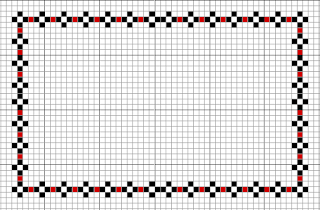The caps were rather inexpensive to make as I already had the Workwoman's Guide (not to mention you can find it for free on Google Books) and all ribbons and laces were already part of the stash. Thank goodness for a well-stocked stash! The only thing I had to purchase was the fabrics. I bought 1 yard of Swiss dot, which was far more than I needed-I used maybe 1/2 a yard, 2 yards of cotton bobinette (I shall use the rest to trim bonnets), and 2 yards of cotton lawn (which actually came from the stash so I suppose the cost of that doesn't count).
I have filmed myself making these caps so I shall upload the videos at the end of this post as I get them onto Youtube.
1830s Blue Cap
This cap is made from Swiss dot and trimmed with blue moire ribbon. I had the ribbon left over from a previous bonnet project so the cost of the cap was essentially a bit of Swiss dot.First, the research.
I used a pattern from the Workwoman's Guide. The directions are on page 126 (it is the 'dress bonnet') and the pattern and finished cap are shown on plate 15 and are figures 9, 10, and 11, shown below.
I made a few changes, namely that I decided to forgo the ties and put no wire in the cap as to make it a bonnet cap. I added the blue ribbon like the original cap below.
 |
| The Helen Larson Private CollectionI shaped the ear tabs of my reproduction like this one instead of adding the ties as in the WWG. |
 |
| Mrs. Gideon Tucker, ca. 1830 Mrs. Tucker used her decorative ribbons as ties. As I was using this cap as a bonnet cap, I felt that two sets of ties would be rather cumbersome. |
 |
| MFA Museum cap. Original Swiss dot cap in similar shape to my own. |
And of course, the completed cap! The front pleated trim got caught underneath my hair, but now that I know that they have that tendency, I shall be sure to pull them out next time :).

1830s Pomegranate Cap
This cap is made of cotton bobbinette and trimmed with silk satin ribbon. I once again used the Workwoman's Guide. This time the directions were on page 128 and I used figures 14 and 15, still on plate 15.
 |
| National Trust Net cap in a similar pattern to the one in the WWG. |
 |
| Unknown source. This cap trimmed with ribbon bows inspired the trimming of this cap. |
 |
| Metropolitan Museum of Art Net Cap in a similar design to my own. |

1840s Swiss Dot Cap
For this cap, I used figures 9, 10, and 11 as in the first cap but took away some of the height of the crown piece. I also added a curtain, since I was copying the original below.
 |
| Museum of Fine Arts, Boston This was the cap I copied for the swiss dot 1840s cap. |
1840s Plain Cap
Again, I used 1/2" white ribbon ties and also used the same ribbon to draw it up in the back. I'm not a huge fan of how this one fits. I ended up taking some tucks just behind the ears and that definitely helped. If I were to do it again I would set the gathering ties a few more inches back. I think it could also be about 1" longer all around and I wish I could get rid of the puffiness in the back.
Enjoy!

















